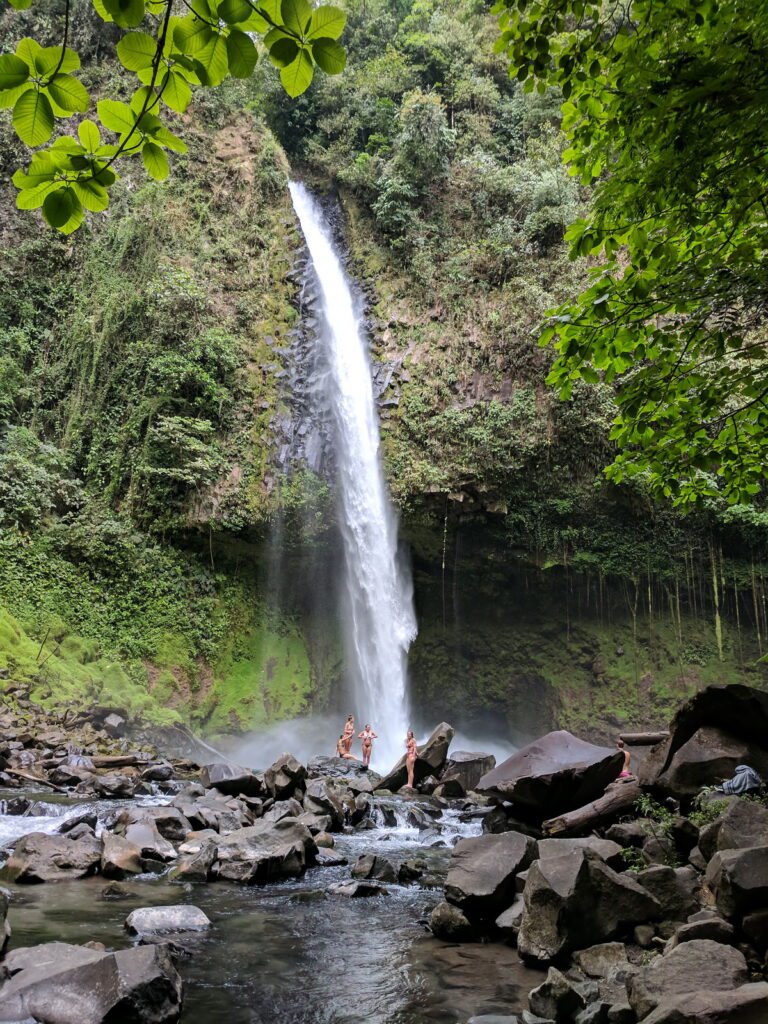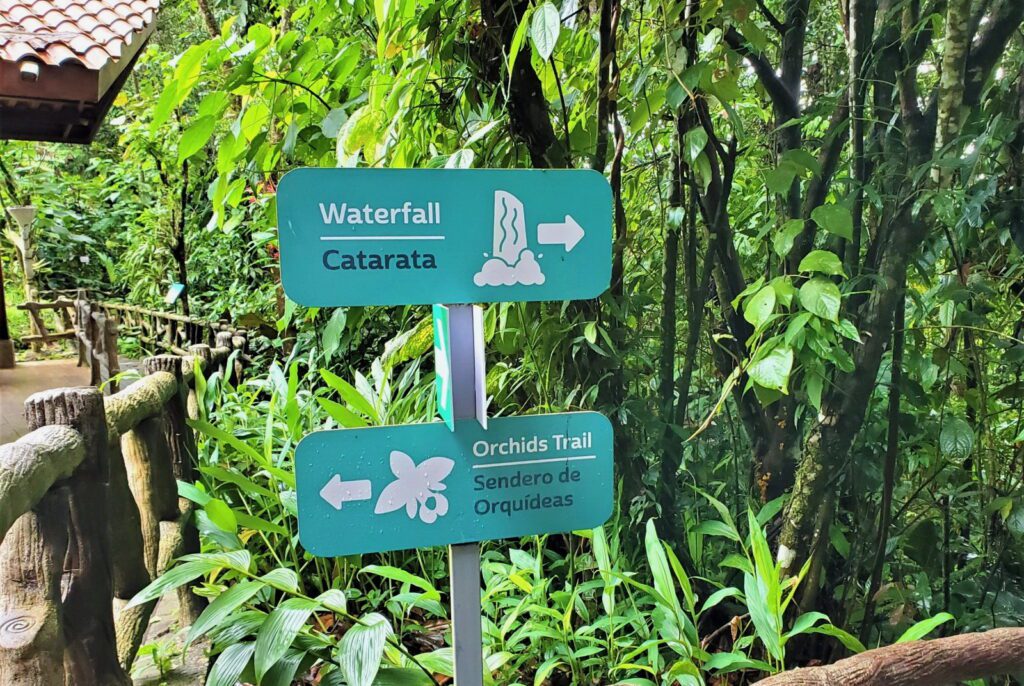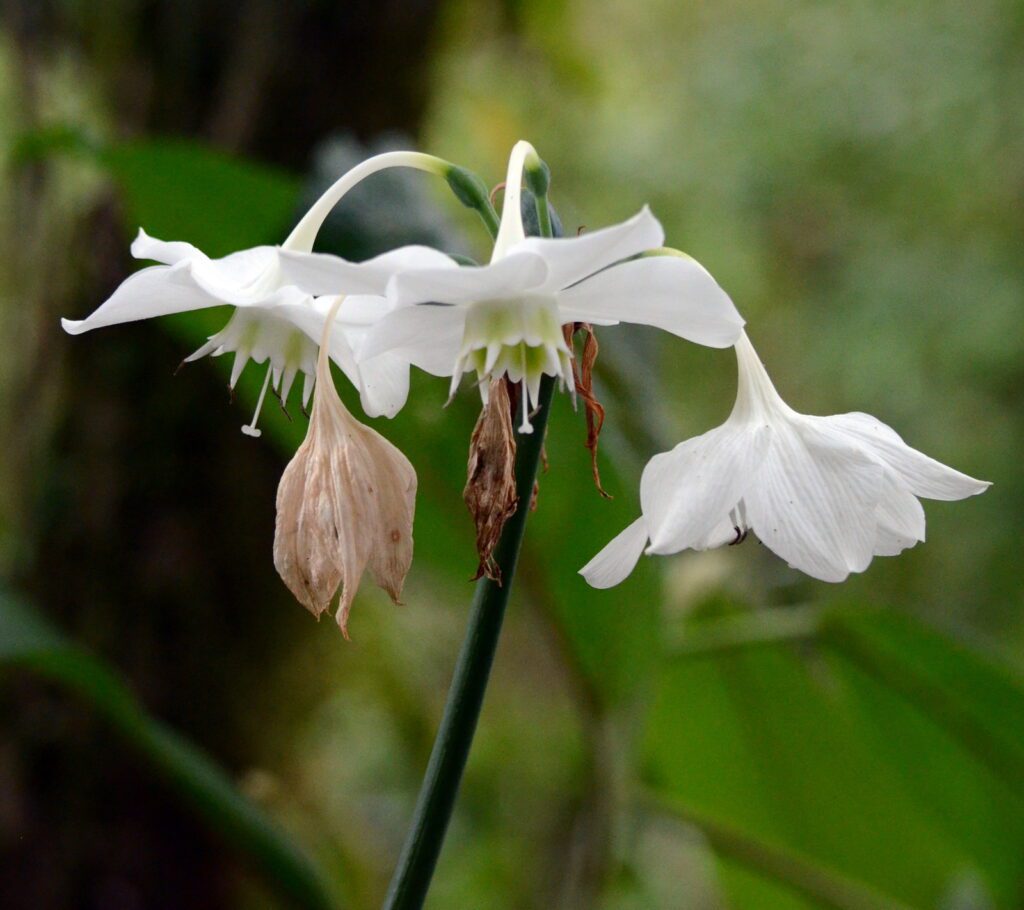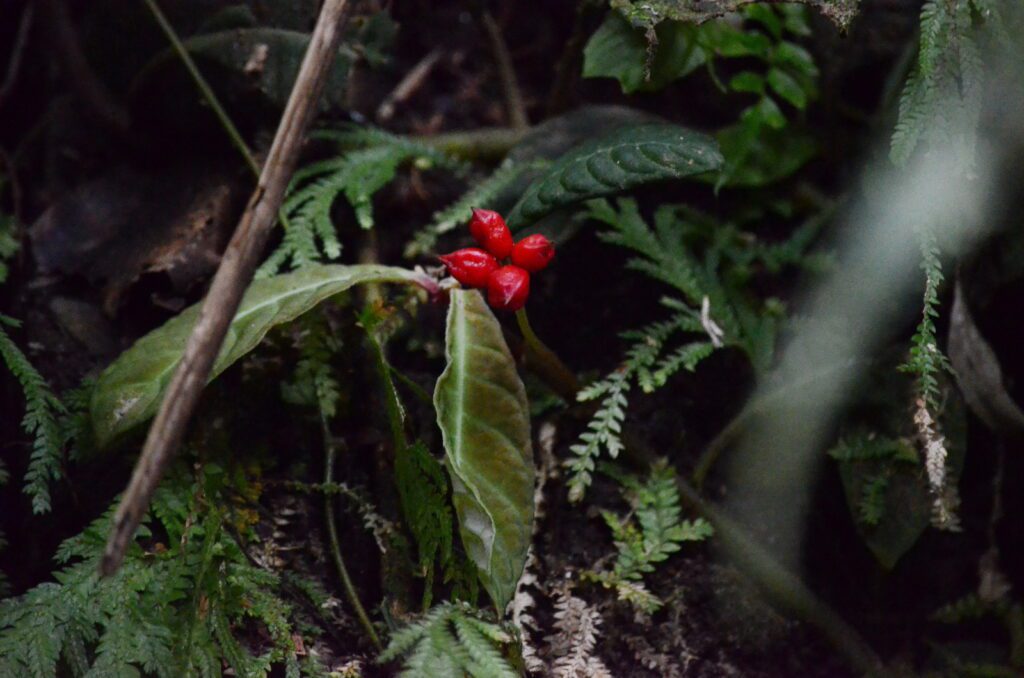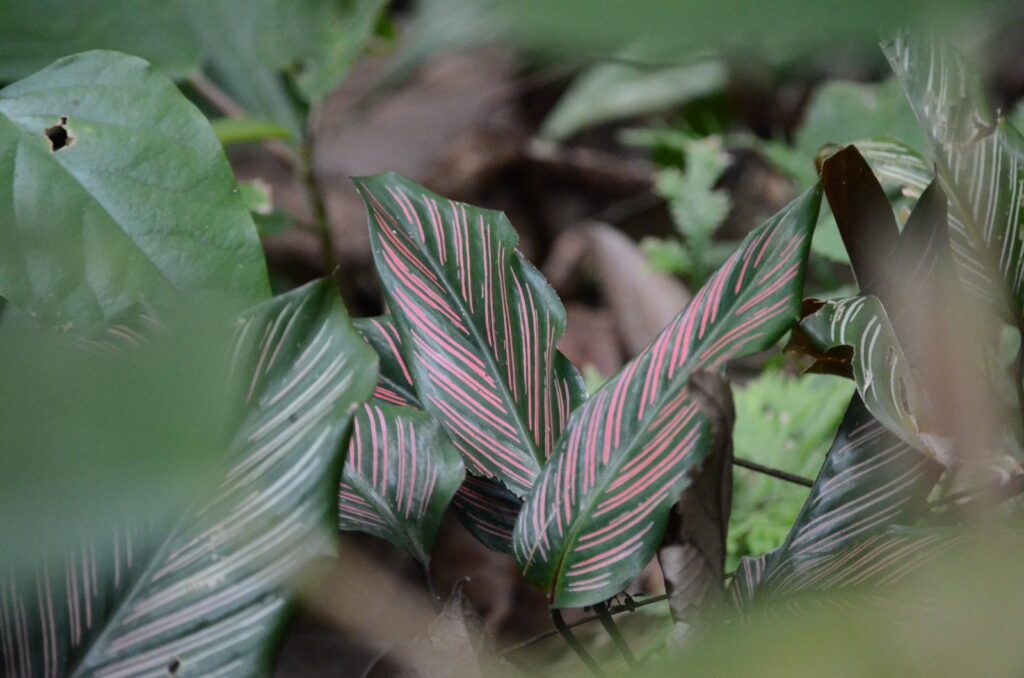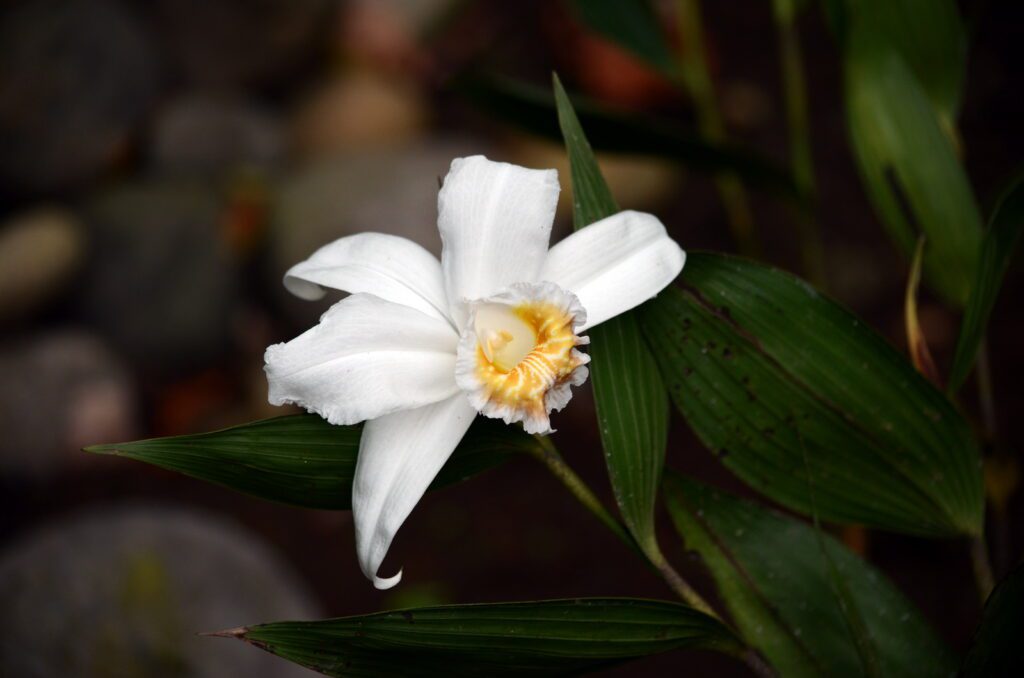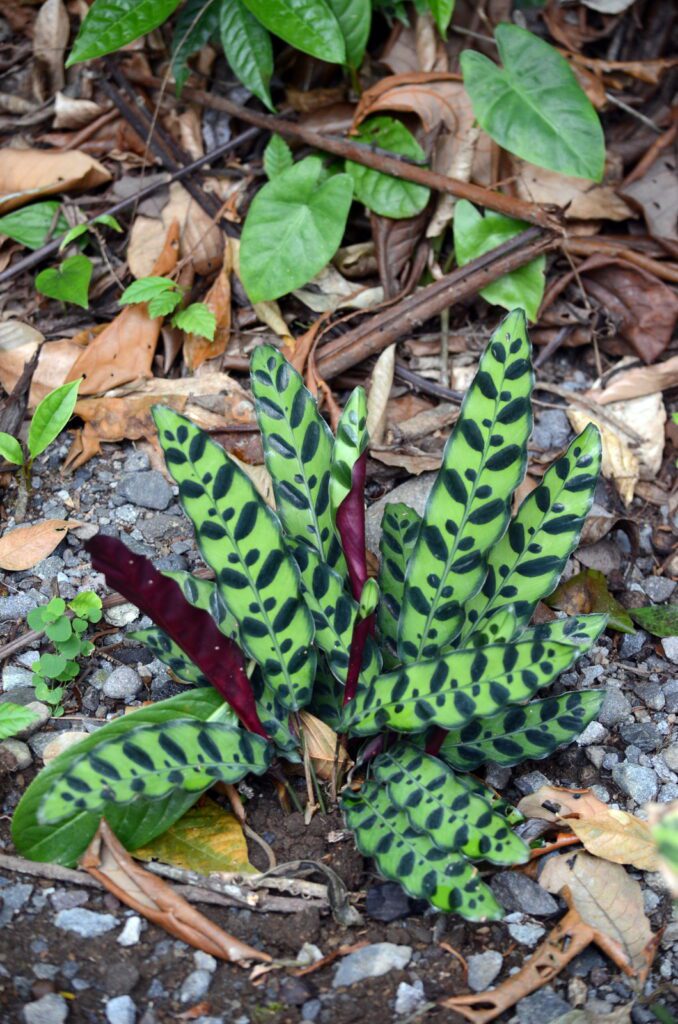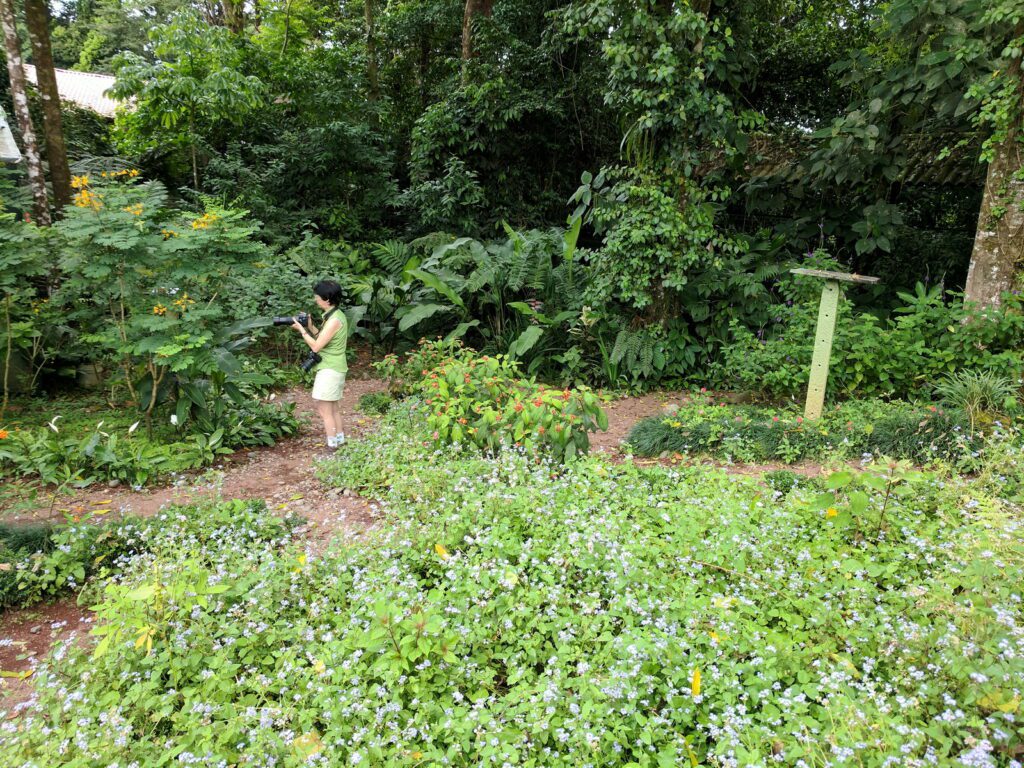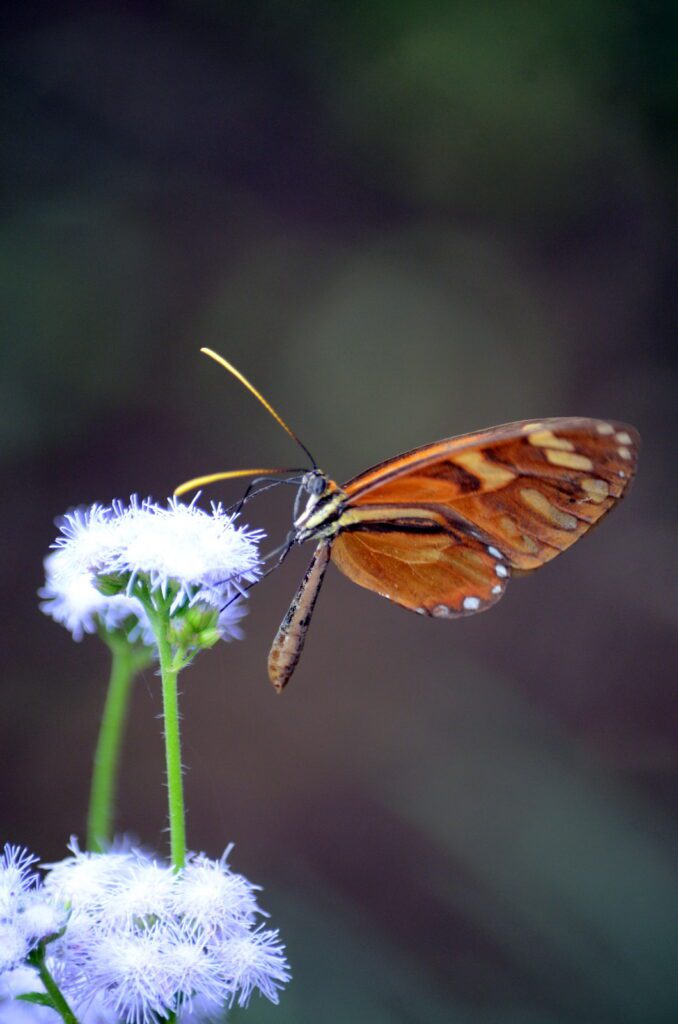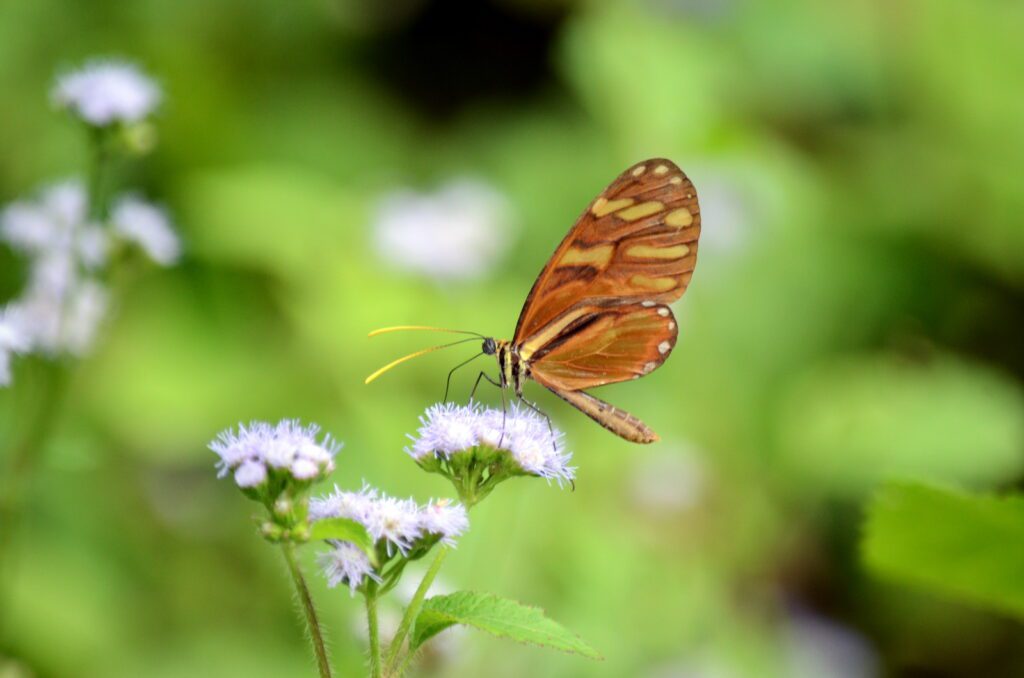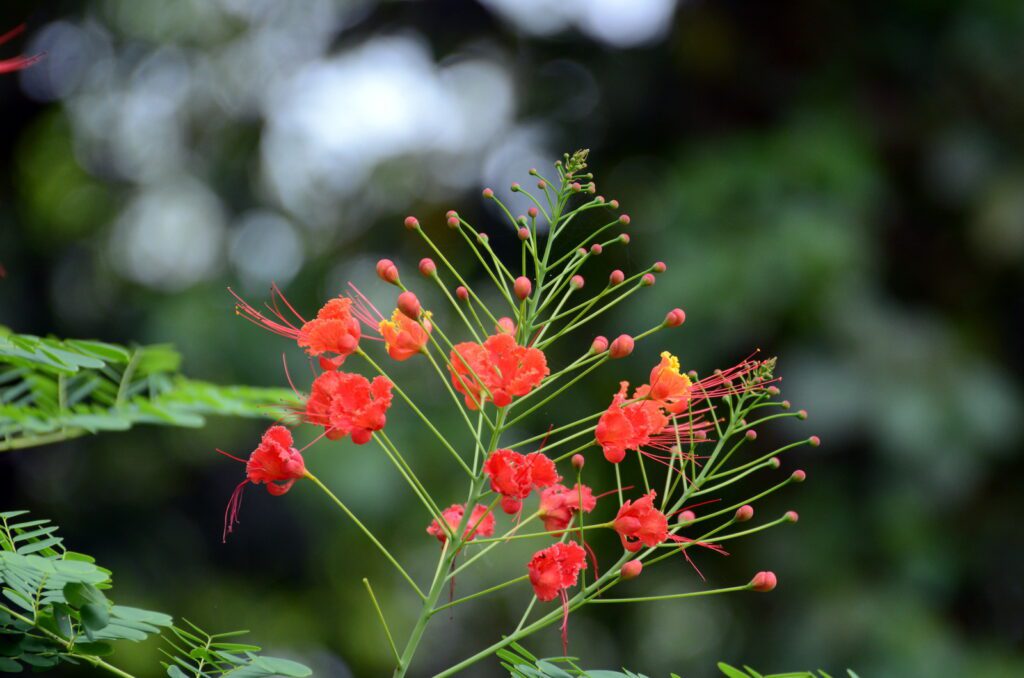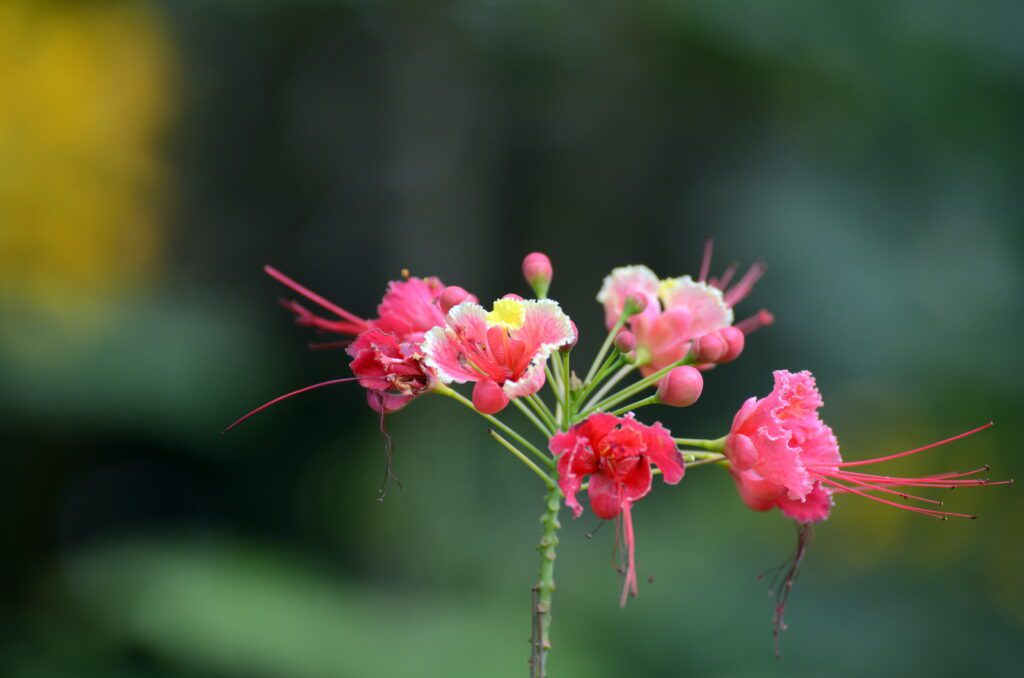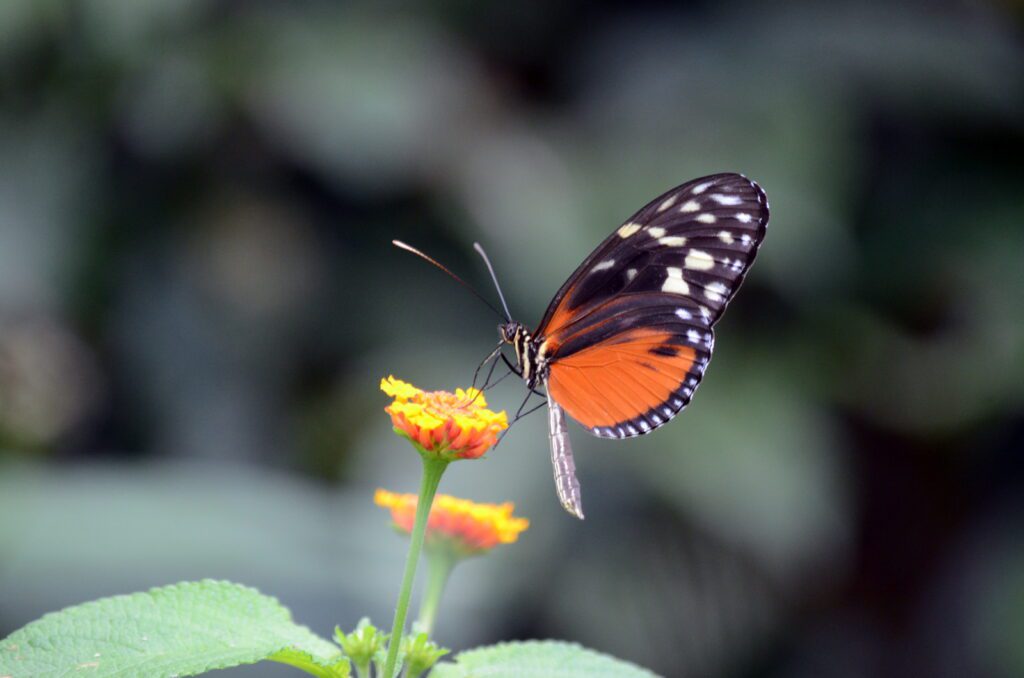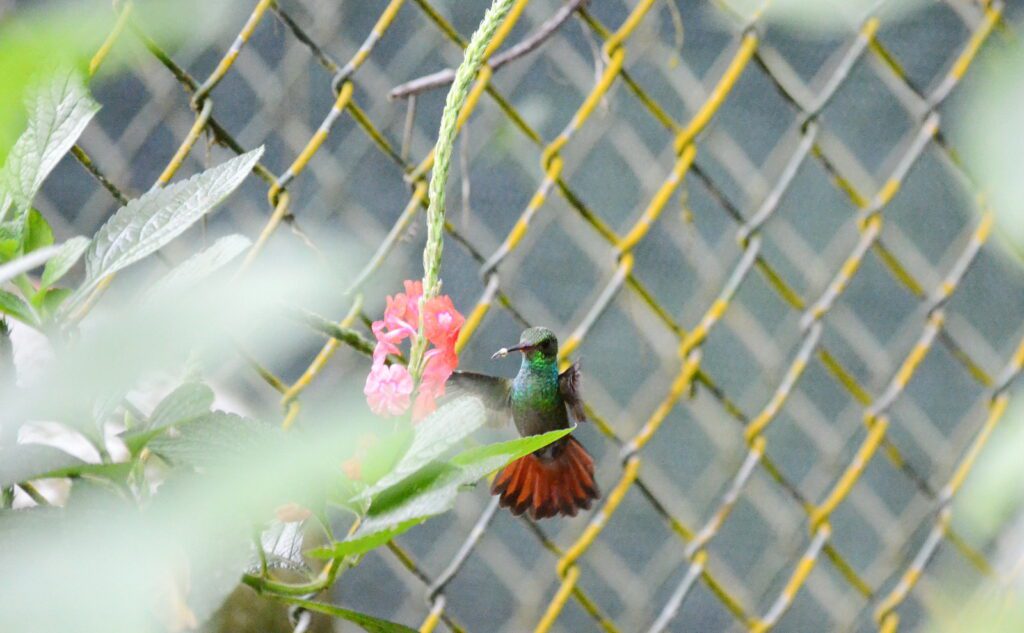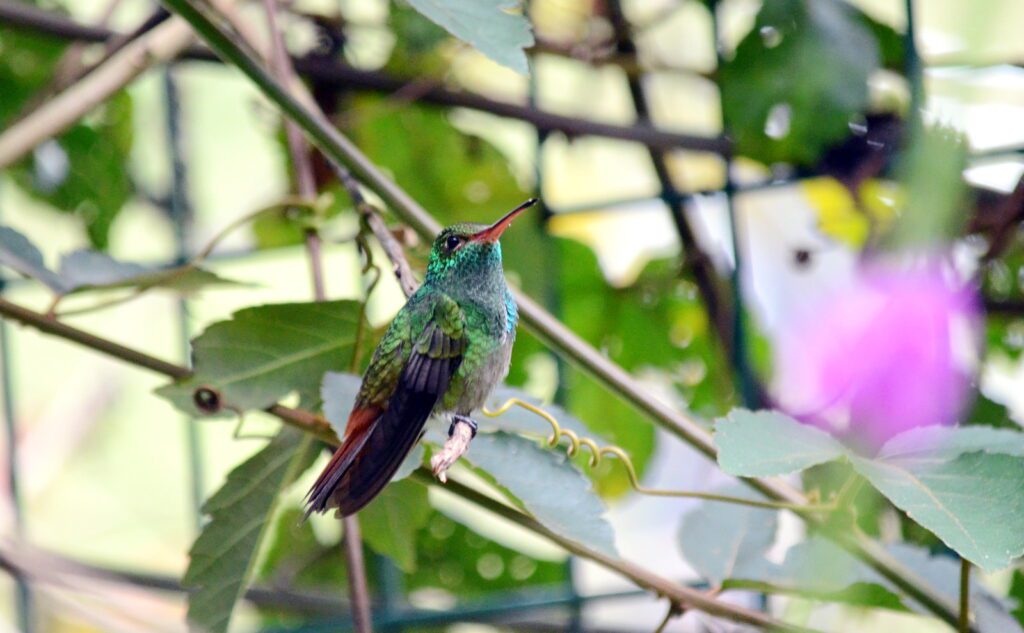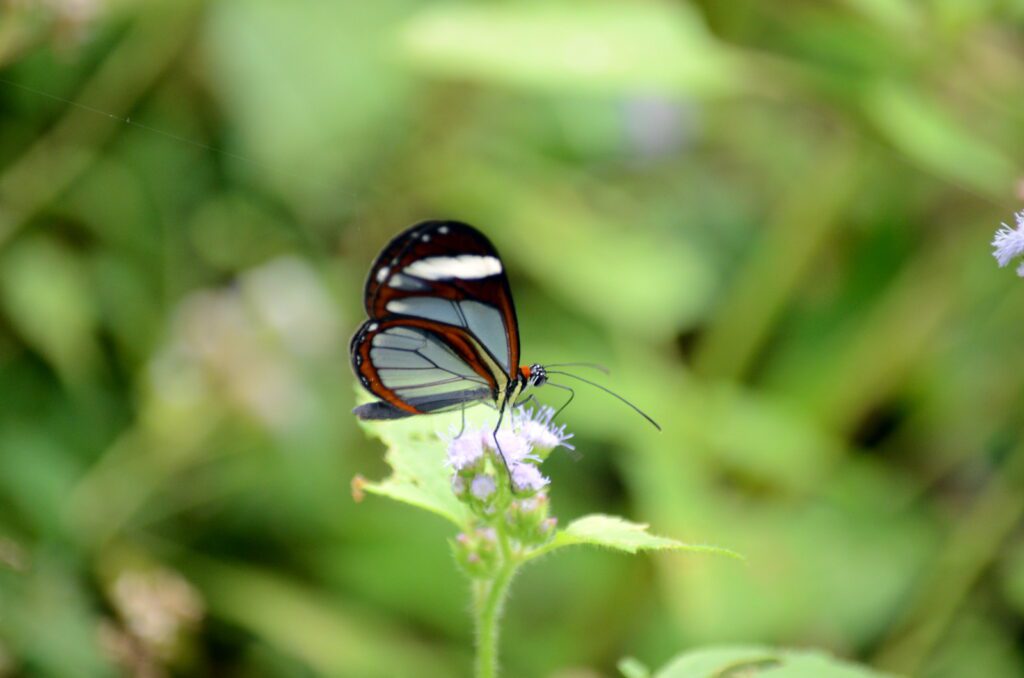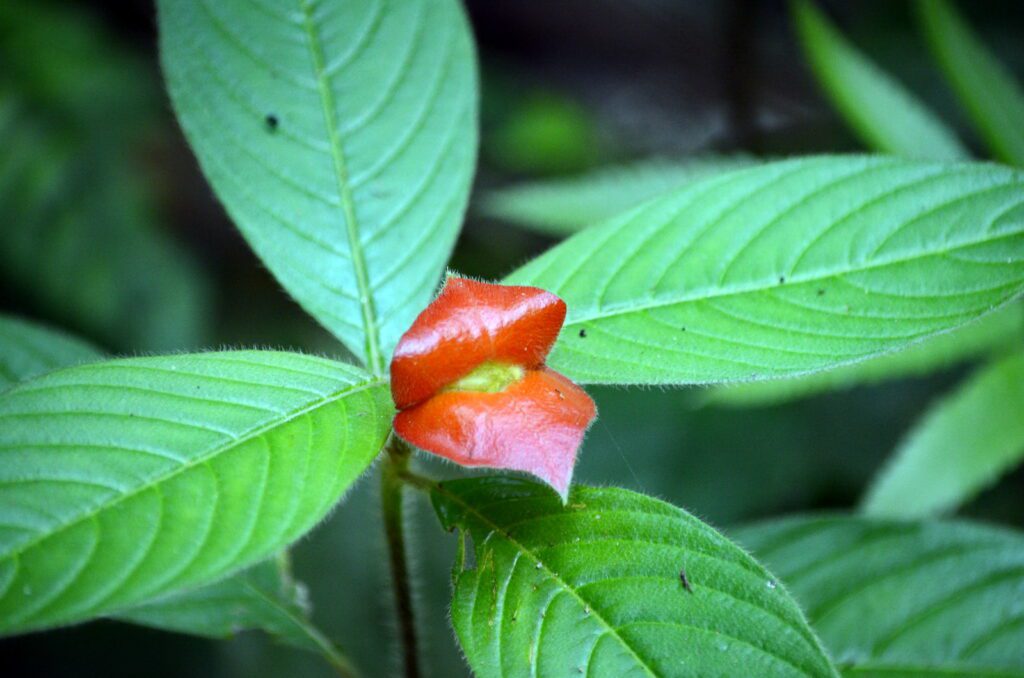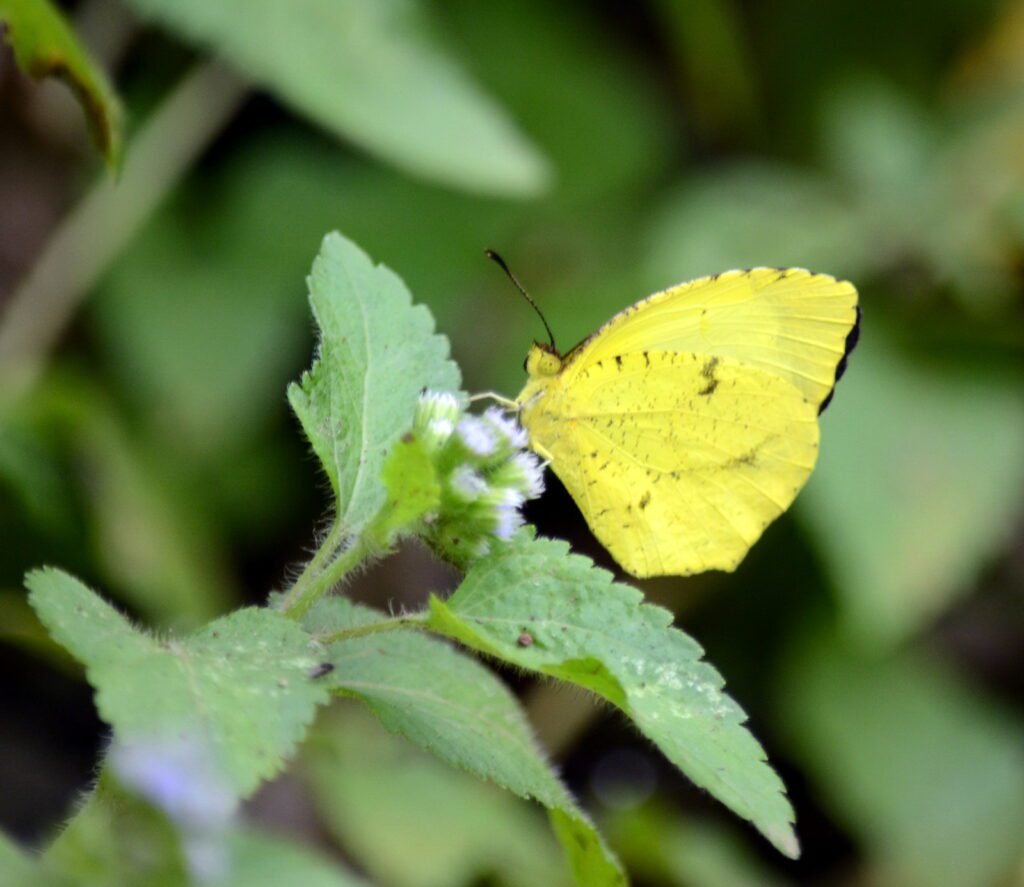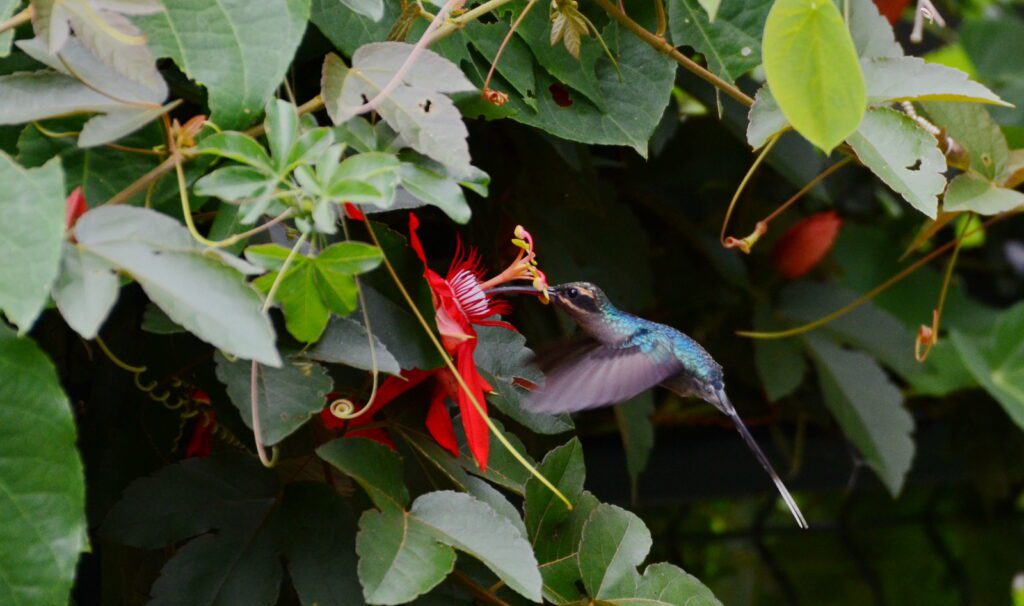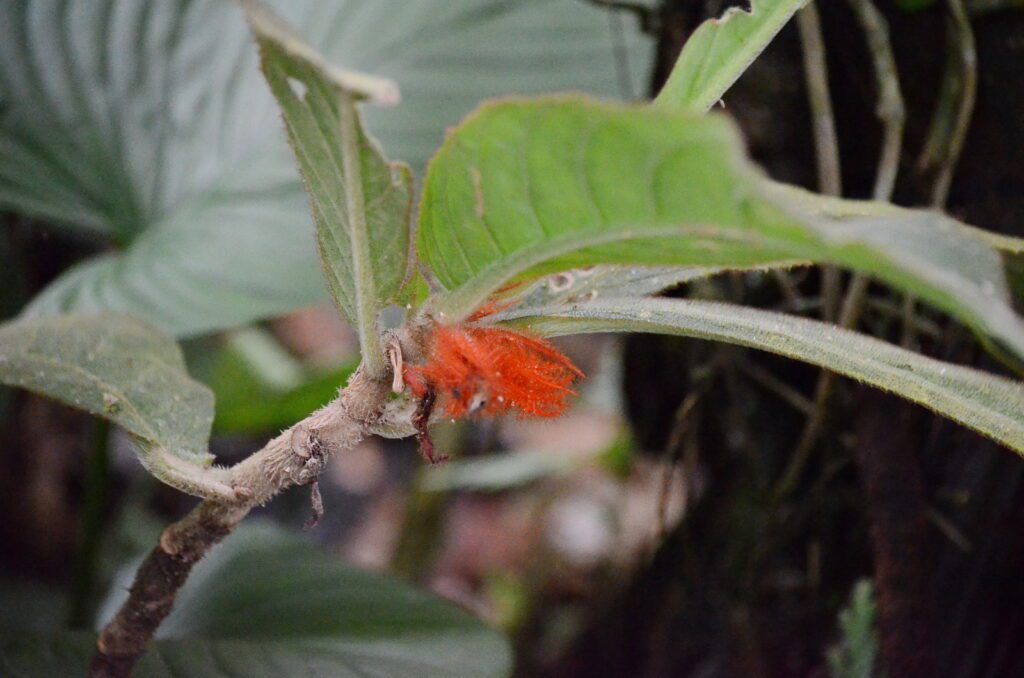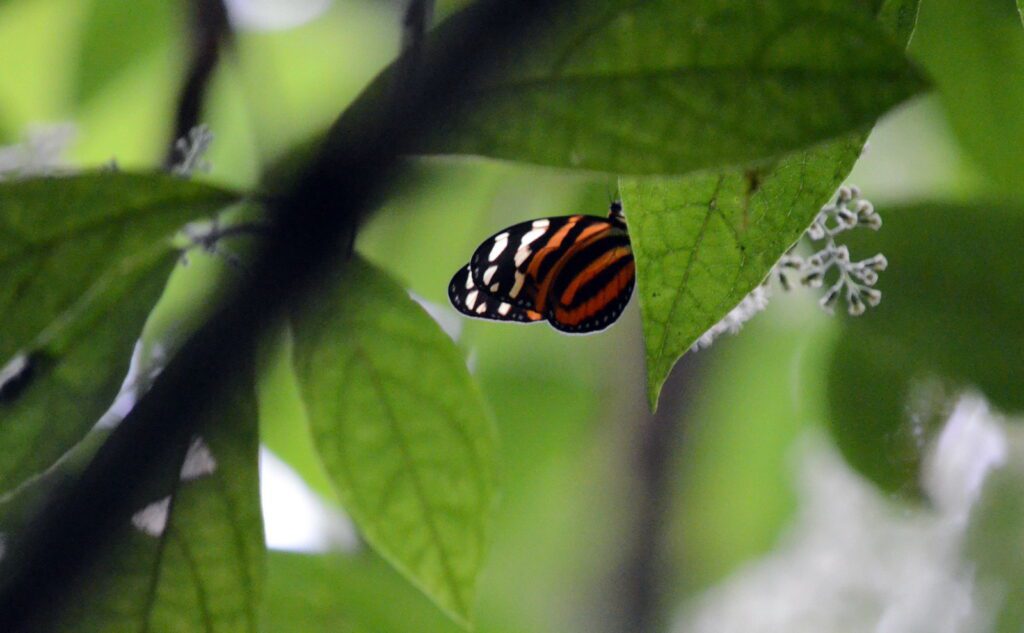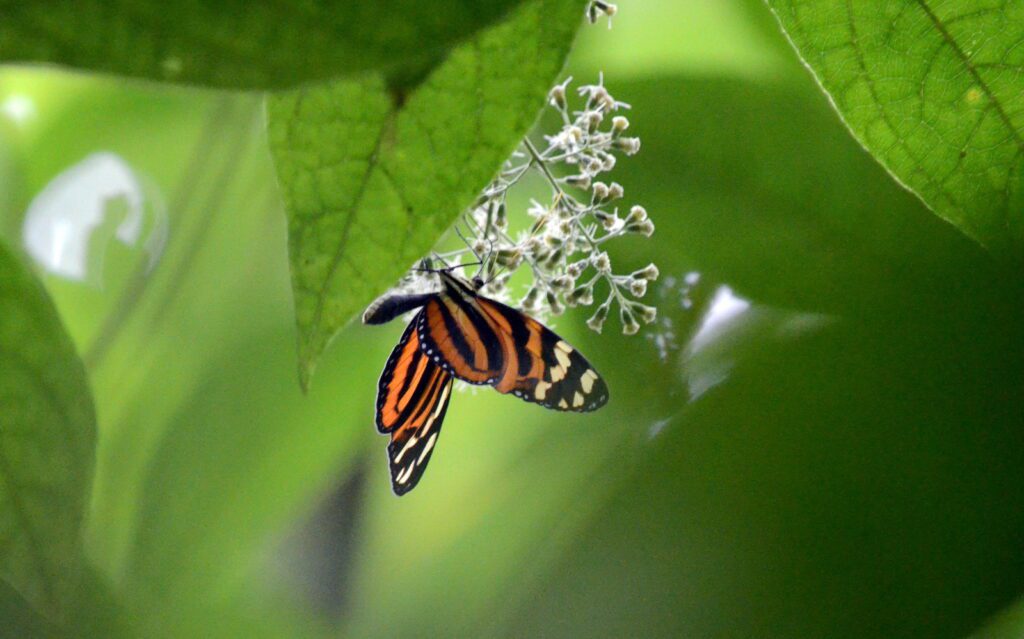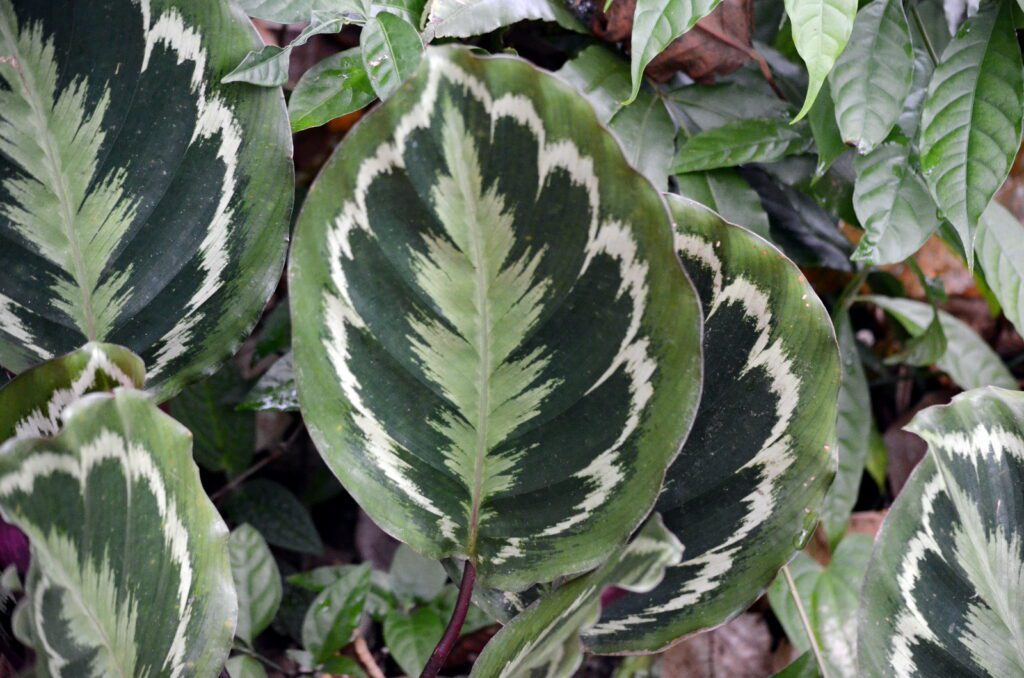Butterflies and Blossoms Near La Fortuna Waterfall
After a morning spent admiring La Fortuna Waterfall, Bob and I trudged back up the 500 steps to the top of the valley. By that time, we were ready for lunch.
Parking ourselves in the onsite restaurant, we enjoyed a hearty meal.
I rewarded myself with a Mojito, the best one I’ve ever tasted! From there, we headed for the on-site butterfly garden and Orchids Trail. Our fascination with butterflies was piqued when we spotted a few new-to-us species.
The butterfly garden is near the entrance to La Fortuna Waterfalls adjacent to the Orchids Trail. An easy walk around this small section of rainforest was a good way to spend the early part of the afternoon.
We soon discovered that the Orchids Trail weaving through the forest was short and mostly level. Exquisite flowers such as this Amazon Lily had us stopping frequently to appreciate the delicate beauty.
Anthurium Talamancae brightened one shady spot amidst the tall trees.
The foliage of some plants was just as remarkable as the unusual blossoms. Here we see an example of Pinstripe Calathea.
Golden Mouth Sobralia struck me as a very elegant orchid with its gleaming white petals and gilded throat.
Entering into the butterfly garden where more sunlight could reach the vegetation, we found such interesting plants as this Calathea Lancifolia. I much preferred this name over the more common moniker of Rattlesnake Plant.
To protect the plants in this cultivated corner, paths are outlined with fine gravel. Bob and I meandered leisurely among the various beds.
It was only moments before we started to notice the fluttering movements of a variety of butterflies. We were very pleased when this Heraldica Clearwing started nectaring on a flower.
Alternately called Ithomia Heraldica, this species of brushfoot butterfly ranges throughout Costa Rica and Panama.
With such vibrant blossoms as this Peacock Flower studding the flower gardens, it was no wonder that butterflies were attracted to the plantings.
As beautiful as these flowers are, the seeds, bark, flowers and leaves of this plant are poisonous. Peacock Flower is native to the tropics and subtropics of the Americas and is referred to by a number of alternate names.
Almost overlooked was a Tiger Longwing Butterfly where it perched on a cluster of orange flowers. The vivid orange and black markings of this species of butterfly serves it well. Mimicking another species that shares its habitat, the Cream-spotted Tigerwing, both species are avoided by predators because the lookalike is distasteful owing to alkaloids in its body.
Sharing the bounty of so many blossoms were also a couple of species of hummingbirds, this one being a Rufous-tailed Hummingbird showing off its flashy tail from which its name is derived.
Tired from chasing away competitors from the food source, this female Rufous-tailed Hummingbird quietly rested. A female Rufous-tailed Hummingbird shows red only on the bottom mandible of the beak.
Bob and I were completely taken with this Patilla Clearwing Butterfly never having seen before a butterfly with transparent wings. Studies point to the fact that butterflies with transparent wings are able to hide in plain sight since the wings aid in camouflaging the insect.
With radiant red bracts resembling lipstick-coated lips, the Sore-mouth Bush had Bob and me stopping in our tracks. Is there any wonder that the bracts also attract pollinators? This plant has been documented for centuries by indigenous people as having health benefits. It was used to make pain medication and for treatment of cold symptoms.
Like a ray of sunshine, this Tropical Yellow Butterfly brightened even the darkest corner of the butterfly garden when it lit on a plant.
With lush shrubs sporting colourful blossoms such as this Passionflower, hummingbirds were jostling for a turn at the nectar. I love the slightly curved bill on this Green Hermit Hummingbird.
Totally foreign to Bob and me was this unusual plant called Columnea Purpurata. Although the brightly-coloured calyces and bracts are a temptation to hummingbirds, we didn’t see any visiting this plant at that time.
To the best of my knowledge, this is a Mimic Tigerwing Butterfly, but I was unable to find much information about the species.
Considering its similarity to other Tigerwing Butterflies, and its name, I must presume that this species is avoided by predators for its resemblance to less tasty members of the Longwing family of butterflies.
Before departing the butterfly garden and Orchids Trail, Bob and I stopped to admire the substantial leaves of this Calathea, a type of Prayer Plant not unlike those that we see for sale in nurseries and garden centres at home. Our time strolling this thoughtfully put together garden whetted our interest in butterflies and was a good way to relax after the strenuous hike in the morning.
Frame To Frame – Bob and Jean

